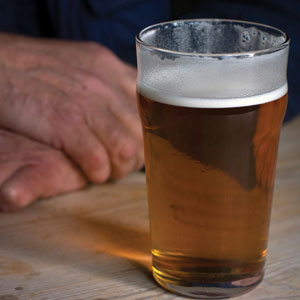Doctors should not be reluctant to prescribe oral naltrexone for the treatment of alcohol addiction, as ‘fears over side-effects are unfounded’, according to researchers.
A study from the universities of Manchester and Brighton assessed the adverse events associated with oral naltrexone – which can be used to treat alcohol disorders.
The researchers found ‘no evidence’ the drug increased the risk of serious adverse events, and urged policy makers to review the research in the hope that it will increase its use in treating patients with alcohol addiction.
The study, published in BMC Medicine, analysed controlled trials of oral naltrexone at any dose, lasting longer than four weeks, between January 2001 and May 2018.
The research team included any condition or age group, but excluded studies in opioid or ex-opioid users so as to avoid any possible opioid/opioid antagonist interactions.
A total of 89 randomised controlled trials with 11,194 participants were looked at, mainly studying alcohol use disorders, various psychiatric disorders, impulse control disorders, other addictions including smoking, obesity or eating disorders. Twenty-six studies (4,960 participants) recorded serious adverse events.
The study said: ‘There was no evidence of increased risk of serious adverse events for naltrexone compared to placebo.’
‘Secondary analysis revealed only six marginally significant adverse events for naltrexone compared to placebo, which were of mild severity,’ it added.
Lead author and University of Manchester researcher Dr Monica Bolton said: ‘Though naltrexone is licensed for the treatment of alcohol addiction, it remains under-utilised.’
She continued: ‘Up to 58% of alcohol-dependent people in England want to reduce their drinking, and this drug could help them succeed. It is cost effective and could reduce deaths.’
Fellow author and University of Manchester research associate Dr Alex Hodkinson said less than 0.5% of those eligible are prescribed naltrexone, and just 11.7% of patients with more severe forms of alcohol dependence receive relevant drug therapy in the year following diagnosis.
He said: ‘Like all drugs for alcohol addiction, the chaotic nature of being an addict means this drug is simply not prescribed as much as it should be.
‘It’s also a cultural issue: there is a reluctance to prescribe one drug to combat addiction in another substance. Our review also shows that fears over side-effects are unfounded.’
The researchers have called for policy makers to use the study findings, along with other research on the benefits and cost-effectiveness of naltrexone to ‘draw/revise evidence-based recommendations regarding the licensed use of naltrexone in a broader range of conditions’.
This comes after NHS England announced alcohol care teams will be rolled out in hospitals with the highest number of alcohol-related admissions, as part of the NHS long-term plan.
Recent figures from the Office of National Statistics reported 7,697 alcohol-specific deaths in the UK in 2017, equating to 12.2 deaths per 100,000 population.
Pulse October survey
Take our July 2025 survey to potentially win £1.000 worth of tokens













